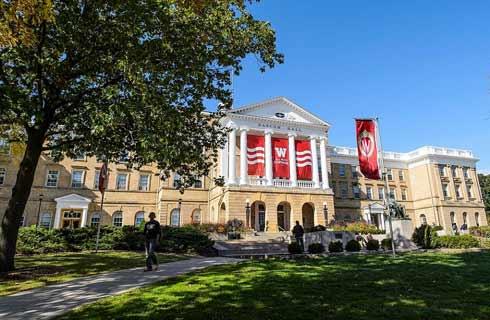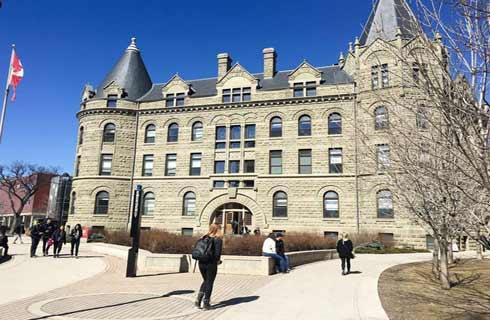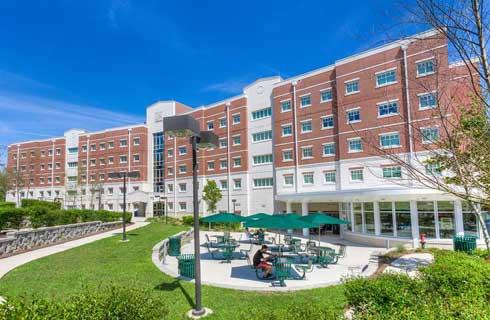数量经济学文学学士学位
Bachelor of Arts in Quantitative Economics

学历文凭
Bachelor Degree

专业院系
Department of Economics

开学时间

课程时长

课程学费

国际学生入学条件
Student must have completed secondary school with excellent grades/marks in academic subjects and have earned a certificate of completion that enables you to be admitted to a university in your home country and is equivalent to a U.S. high school diploma. If your secondary/high school was completed in a country where English was not the language of instruction, or if you have less than three years of high school curriculum instruction in English in the U.S., you are required to demonstrate English proficiency.
Various examinations and scores may be used to demonstrate proficiency in English: Test of English as a Foreign Language (TOEFL) examination: Internet-based test (IBT): score 80 or higher; Score 6.5 or higher on the International English Language Testing System (IELTS); Freshman applicants may complete one UC approved English composition course.
IDP—雅思考试联合主办方

雅思考试总分
6.5
- 雅思总分:6.5
- 托福网考总分:80
- 托福笔试总分:160
- 其他语言考试:Duolingo English Test (DET): Minimum score of 115 (Fall 2021 only)
CRICOS代码:
申请截止日期: 请与IDP联系 以获取详细信息。
课程简介
The Department strongly urges students to consider the major in Quantitative Economics, which best prepares them for careers in business and finance, for law school, for M.B.A. programs, and for graduate studies in the social sciences.<br>Economics is concerned with the way individuals or societies allocate scarce resources and distribute goods and services. Any situation requiring choice among competing alternatives can be viewed as an economic problem. Economics courses enable students to study the way individuals make these choices (microeconomics), the way governments make these choices (public choice), the aggregate consequences of these choices (macroeconomics), and to test the relevance of these theories in data (econometrics). In addition, the Economics curriculum addresses international trade, money and banking, and economic development of the less developed nations.<br><br>Faculty members in the Department of Economics have research and teaching interests that span a broad range of fields. In addition to strengths in micro theory, macroeconomics, and econometrics, the Department has expertise in many applied fields, including development economics, economic history, industrial organization, international economics, labor economics, public choice and public finance, transportation economics, and urban economics. Members of the Department maintain close ties with members of the Department of Political Science, the Department of Statistics, The Paul Merage School of Business, and the School of Education. Members of the Department maintain affiliations with the Center for Population, Inequality, and Policy, Institute for Mathematical Behavioral Sciences, Institute of Transportation Studies, Institute on Global Conflict and Cooperation, and the Center for the Study of Democracy.
相关申请
 预科
预科 奖学金
奖学金 实习机会
实习机会 在校学习
在校学习 跨境学习
跨境学习 校园授课-线上开始
校园授课-线上开始 在线/远程学习
在线/远程学习
开学时间&学费
学费信息仅供参考,请与IDP联系以获取详细信息
| 开学时间 | 时长 | 学费 | 地点 |
|---|
学校排名

世界排名96
数据源:
泰晤士高等教育世界大学排名
关于加州大学欧文分校

加州大学欧文分校(University of California Irvine)在最优秀的100所建校历史不足50年的学校中排名全美第一,世界第五,其既有大型科研学校的教学实力,也有小型院校的友好氛围。风景优美的校园,良好的治安,雄厚的师资力量,丰富的课外活动都是加州大学欧文分校(University of California Irvine)所具备的,此外,学生的领导力能力也会在此得到提升,还有诸多优秀的研究生专业包括医药学、护理学、法律、商学、工程学、人文学科。加州大学欧文分校(University of California Irvine)有三名研究人员被授予诺贝尔奖,三名学生被授予普利策奖,三名教师被授予美国国家科学奖。学校的老师会尽力给与学生研究指导和帮助。87%的大四学生都参与了研究项目。加州大学欧文分校(University of California Irvine)的教育为学生将来的就业打下了良好的基础,学校的就业中心会举办丰富的活动帮助学生就业,例如研究生院校的招生活动和招聘会活动,还会指导学生如何制作简历,在校内举办面试。一切活动都为了帮助学生毕业后更好的就业。 加州大学欧文分校(University of California Irvine)共有100多项研究生专业,因此学生在毕业时已经具备了良好的分析、表达、理解能力。根据PayScale2013-2014年度的大学生薪资调查报告显示,该校毕业生的薪资在美国公立大学中排名第14位。无论学生毕业后想继续攻读研究生院还是直接就业,学校提供给他们的帮助与资源支持都为他们毕业后的发展打下了良好的基础。
本校相关课程

Doctor of Philosophy in Sociology
学历文凭
Ph.D.
开学日期
课程费用总额


Doctor of Philosophy in Political Science
学历文凭
Ph.D.
开学日期
课程费用总额


Doctor of Philosophy in Social Science - Mathematical Behavioral Sciences
学历文凭
Ph.D.
开学日期
课程费用总额


Doctor of Philosophy in Economics
学历文凭
Ph.D.
开学日期
课程费用总额


Doctor of Philosophy in Anthropology
学历文凭
Ph.D.
开学日期
课程费用总额


Doctor of Philosophy in Physics
学历文凭
Ph.D.
开学日期
课程费用总额










 美国
美国